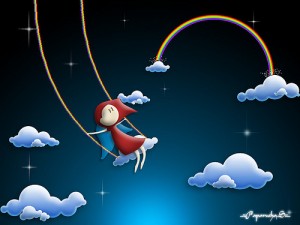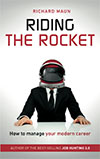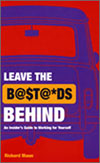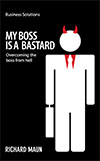better business blog
Tips and stories to add value to you and your organisation

The Child Ego State
How do you sulk? Think for a moment and for fun have a go at answering that question. Do you pout, or huff, or stamp your feet, or give out moody looks, or sigh heavily, or say ‘yes’ but mean ‘no’….
We all sulk from time to time and when we do we tend to behave in the same way that we did as a small child. When we’re grown up this replaying of feelings, thoughts and behaviours from when we were small is called; being in our Child Ego State. This is sometimes shortened to ‘being in our Child.’
What is an Ego State?
Put simply, an Ego State is a metaphor for a collection of behaviours. Because we can’t see inside our heads we need to find ways of labelling clusters of related behaviours and the term ‘Ego State’ does that for us. The Child Ego State refers to the collection of experiences we logged as a young person and which we now use as we make our way through life. Some estimates suggest that about 80% plus of our current behaviour is a repetition of our development up to the age of five or six, by which time we had learned how to play, solve problems, use social graces and table manners, have fun, be creative, be affectionate, get our own way and keep ourselves safe (from the scary big people). Or not. Or to a greater or lesser level.
We are Ourselves
We decided what information to take in, what worked for us and what to alter and the Child Ego State is an embodiment of ‘us’. This means that we might be different from our siblings, who although may have been raised in the same environment, decided on their own way of going about things. I think this is an important point because we are not simply a facsimile of our environment and parents – we have been influenced and we made choices for ourselves. Therefore, the implication is that we have to take responsibility for our actions and not try to pass the buck back down the family tree.
So What?
Knowing about Ego States is useful because they help us to act in awareness and either enjoy being ‘us’ or allow us to make changes to our behaviour. Pause for a moment and think about all the times when you may have been in your Child Ego State so far today? Some useful clues are:
1. When you felt young again.
2. When your were doing what you were told (or rebelling), or being carefree.
3. When your actions could be viewed as being similar to those of a five year old.
4. When you were being your own little self, just getting on with stuff in your way.
I have a large Child Ego State (people can vary in the size of theirs, relative to their other Ego States) and will muck about, choose my breakfast cereal based on how fun it looks, sing in the car on the way to a client and thoroughly resent being asked to do the washing up. In all of these bursts I am most definitely in my Child. I giggle when I’m writing a naughty word (bum) and I love the accurate use of foul language to get a laugh, make a point, or underscore a client’s miserable experience. This can be great fun, challenging and offensive. I have to work hard sometimes to rein it in and if you read my current book you will see there is no swearing, because that would be inappropriate. However, and the publisher hasn’t twigged yet, the book does contain odd words such as C3PO, Christmas, Cincinnati and a guest appearance by King Arthur, that I buried in there, purely for amusement. Knowing about my Child Ego State enabled me to do a thoroughly professional writing job and have a bit of fun at the same time.
That’s the point of the Ego States, which also include Parent and Adult. They are a fantastic framework for observing behaviour, mapping conversations, building teams, improving leadership styles and making long lasting developmental changes.
Our Task For This Week
Is to…spot our sulking and instead of wallowing, catch it and make decision to ask for what we need. We can choose to wash the dishes and be helpful and be positive about it. And we can ask for a hug, or bring cakes for our team and have some fun.
FREE Sample Book…at last a book written for the UK/European market!
Do you know someone who is looking for work and needs a hand? Or is about to be made redundant and needs to make a start in sorting out their CV? Marshall Cavendish have put together a sample ebook of Job Hunting 3.0 which features the whole of the first section called ‘Getting Started’ and the whole of the final section called ‘Checklists’ containing (no surprises here) useful checklists full of interview questions, process tips and essential information for success. If you would like an exclusive copy; email me, subscribe to the blog, or use the contact box and I will zap a copy right back to you.
Pass It On
If you know someone who would be interested in this blog post please forward it to them, or ReTweet it, or let them know they can subscribe to regular emails via the box on the homepage.
By The Way… FREE CRANFIELD COURSE ANYONE?
+++NEWS we’re still collecting CVs and places are filling up so please apply quickly+++ At Cranfield University we’re running an Enhanced Personal Development Programme, starting 3rd September and lasting for 4 weeks. If you know someone who is unemployed (or about to be made redundant) and who would like to learn about job hunting skills, management skills and have fun on a real consultancy project then contact me now. Places are limited and an opportunity to spend 4 weeks full-time at one of the best universities in the world is not to be missed. I’m the Programme Director and one of the lecturers, so I can vouch for the excellence of it!
Thank you for reading to the end and remember to begin spotting when you’re in your Child.
Next week is a brief introduction to the Parent Ego State…which is another archaic Ego State. We will meet the term: Introjected. It’s more interesting than it sounds, trust me.
Tags: Child Ego State, sulk, tip, Transactional Analysis
e-publishing
Click icon for details


recent posts
browse archive
books
Click cover to view details on Amazon
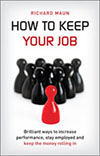
How to Keep Your Job
Brilliant ways to increase performance, stay employed and keep the money rolling in
Published 2011 Marshall Cavendish
208pp
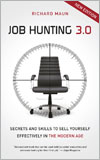
Job Hunting 3.0
Secrets and skills to sell yourself effectively in the Modern Age
Published 2010 Marshall Cavendish
260pp

 RSS
RSS